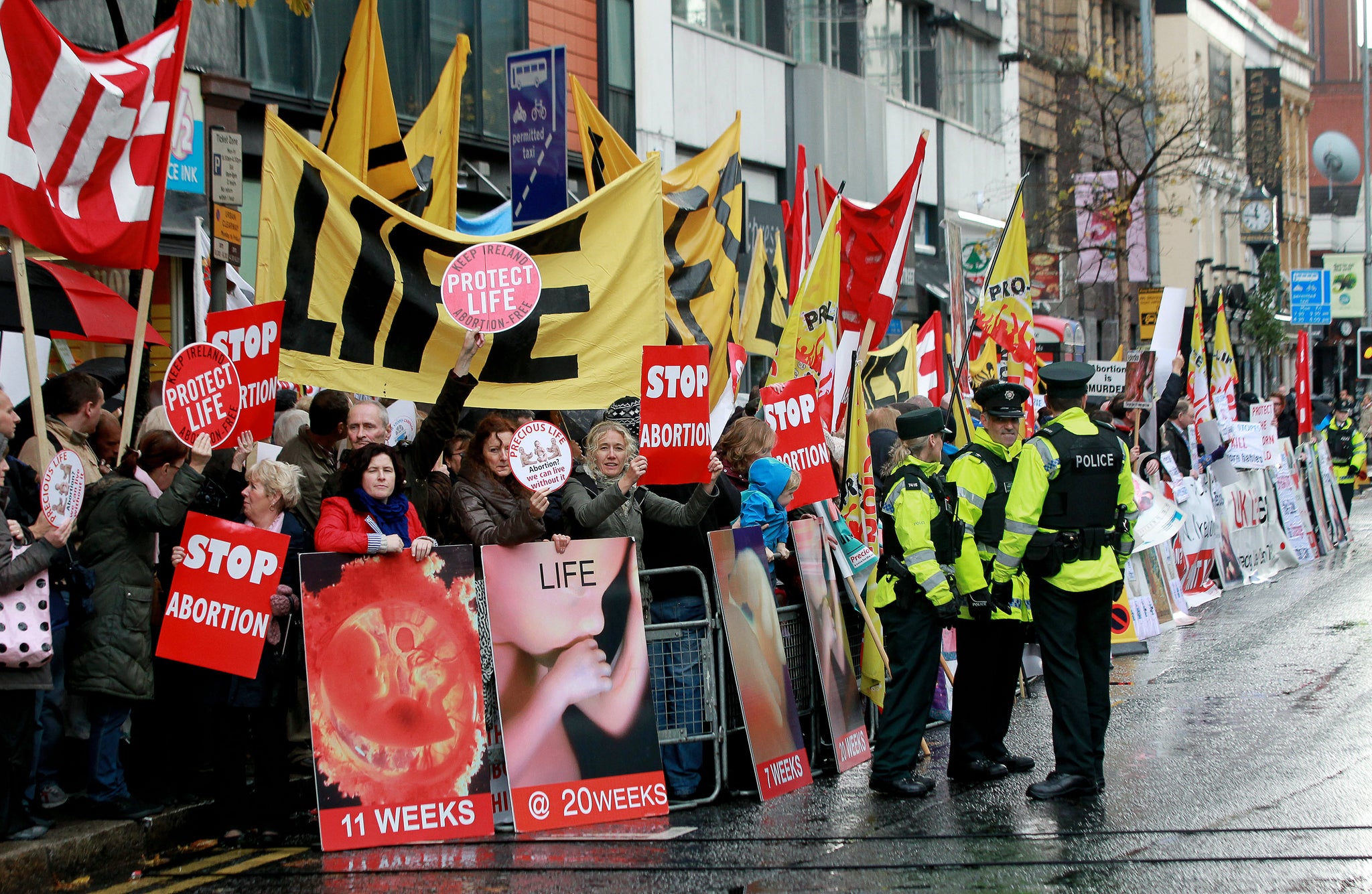The 'phone call abortion' row is distracting us from the real injustices faced by women seeking a termination
Women are not incubators. We should not become dehumanised vessels as soon as a pregnancy occurs, our own decisions and desires erased in favour of some perceived greater good of carrying a foetus to term


On Sunday evening, the Daily Mail published an investigation into Britain’s largest independent provider of abortions, Marie Stopes, revealing that terminations are being approved after short telephone conversations, some as brief as 22 seconds. Marie Stopes’ managing director Paul McPartian maintains that all the provider’s services comply with British abortion law and that the 22 second conversation between a call centre worker and a Mail journalist pretending to require a termination was part of “a 16-minute booking call, which was very thorough”.
But now a row has now broken out with some commentators online and on social media – many of them, it must be pointed out, men – taking particular umbrage at the idea that some women do not meet face-to-face with the two doctors legally required to sign off on their termination through Marie Stopes clinics or at any abortion provider in Britain. This despite the fact that it is not a legal requirement for either doctor to meet the patient face to face; the Department of Health describes an in-person meeting as ‘desirable’, not essential.
If a woman seeks an abortion on the NHS, rather than with Marie Stopes or a private clinic, she will most likely have met both the two doctors signing off on the termination. However, this does not always occur. And, in any case, the second doctor is still likely to be completely unknown to the patient and know nothing about their personal circumstances or reasons behind choosing to terminate a pregnancy.
This “phone call abortion” row is a manufactured controversy. It’s designed to discredit Marie Stopes, and stimulate outrage among conservatives. And in doing so, it obscures real injustices in the abortion system – namely that in modern Britain, a woman still needs the permission of two doctors (including one she has most certainly never met before) in order to terminate a pregnancy.
In 2017, a woman should be able to choose an abortion without needing anyone else’s approval and without having to cite a specific reason listed by the 1967 Abortion Act. The involvement of medical professionals should be restricted to the medical aspects of the procedure, including providing accurate information about what happens during an abortion and the possible physical and mental health risks associated with it.
When making choices about their own bodies and futures, women should be properly supported and informed by the medical profession – but not have to waste time with providing justification for their decision or convincing anyone of that they “deserve” to end an unwanted pregnancy.
There are a myriad of reasons why women wish to terminate pregnancies, and to pick and choose which are valid (or more often, which are considered sympathetic) is to engage in damaging respectability politics.
Women are not incubators; we should not become dehumanised vessels as soon as a pregnancy occurs, our own decisions and desires erased in favour of some perceived greater good of carrying a foetus to term.
In the wake of Trump’s hugely damaging Global Gag Rule – a policy which blocks Federal funding from being channelled to any organisation, anywhere in the world, offering abortion support or advocacy – it’s more important than ever that Britain’s abortion regulation modernises to keep up with the realities of women’s lives and to ensure it is completely free from moralistic or faith-based restrictions.
Britain is one of the least religious countries in the world, with two thirds of the population identifying as non-religious, and faith perspectives on abortions should not affect accessibility for the wider population. The double sign off still required for abortions is archaic and insulting, reminding women that we are not allowed to choose what to do with our own bodies without first jumping through outdated hoops.
The “phone call abortion” row is merely a distraction from this reality, encouraging tiresome pearl-clutching and drawing attention away from the real concerns of women who seek an abortion in 2017.



Join our commenting forum
Join thought-provoking conversations, follow other Independent readers and see their replies